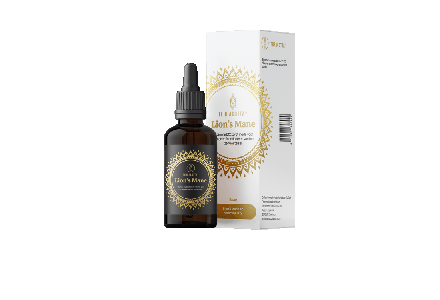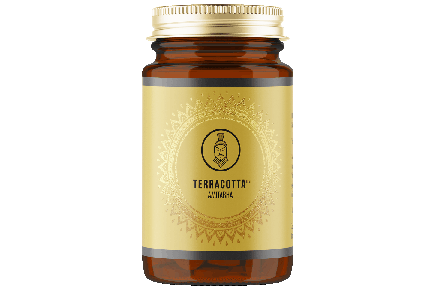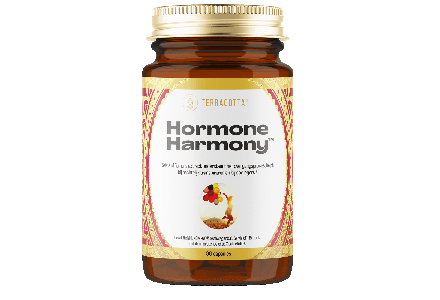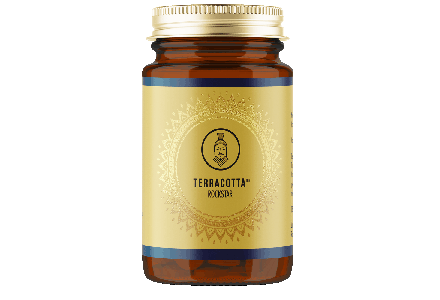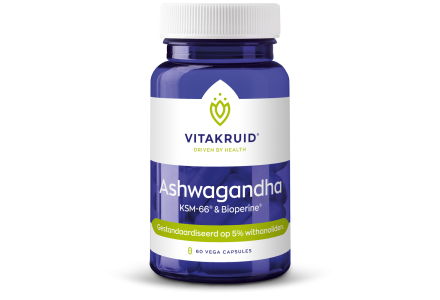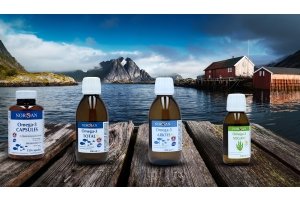
In our modern, hectic world, stress seems inevitable. From deadlines and personal obligations to dealing with major life changes, our bodies are constantly exposed to various forms of stress. Fortunately, nature offers a solution: adaptogens. These powerful, natural substances from plants and mushrooms are known for their ability to help the body cope with stress and restore balance. In this blog, we dive deeper into the world of adaptogens: what they are, how they work and why they can play an important role in strengthening your stress resilience. We also describe some of these substances.
What are Adaptogens
Adaptogens are substances, usually derived from plants or herbs and mushrooms, that help the body adapt to stress and maintain homeostasis (balance). The origin of the use of adaptogens goes back to ancient traditional healing systems, especially in Ayurvedic medicine in India and traditional Chinese medicine.
The term “adaptogen” itself was introduced in the 1940s by Russian physician and scientist Nikolai Lazarev, who was researching the effects of certain herbs on the body's stress response. Later, in the 1960s, the concept was further developed by other researchers, including Dr. Israel Brekhman, who studied various herbs and documented their adaptogenic properties.
What are they good for?
In Ayurvedic medicine, various herbs and plants have been used for thousands of years to promote overall health and help the body cope with stress. In traditional Chinese medicine, adaptogenic herbs are often used to increase energy and improve resistance to stress.
Today, adaptogens are increasingly popular in the Western world, especially in the context of health and wellness, and are often used in supplements and health products.
Adaptogens are said to help the body cope better with stress and restore natural balance (homeostasis). They work by supporting and regulating the body's stress system, and are often promoted for their purported ability to improve energy levels, mental clarity and overall well-being.
Key features of adaptogens:
Stress resistance: Adaptogens help the body adapt to different forms of stress, such as physical, emotional or mental stress.
Homeostasis: They are said to help the body regain balance after periods of stress by supporting where needed without overstimulating or suppressing the body.
Broad Action: Unlike medications, which often act specifically on one system, adaptogens are said to act on multiple systems of the body, such as the endocrine, nervous and immune systems.
What adaptogens are there?
There are many different adaptogens used in traditional medicine and modern supplements. The following are some of the most popular adaptogens, although this is not an exhaustive list:
Chaga
Chaga (Inonotus obliquus) is a mushroom that grows mainly on birch trees in cold climates, such as parts of Siberia, Canada and northern Europe. It is often praised for its potential health benefits and has been used for centuries in traditional medicine, especially in Russia and other parts of Eastern Europe. Chaga is rich in antioxidants, including polyphenols and betulinic acid, and also contains vitamins, minerals and other bioactive compounds.
Some potential health benefits of Chaga can be found in the areas of antioxidant activity, immune system support, anti-inflammatory properties, blood glucose regulation and liver health support.
Chaga is often used in the form of tea, powder or extracts. It can be added to smoothies, coffee or other beverages.
Cordyceps
Cordyceps is a genus of fungi, with the best-known species being Cordyceps sinensis, which grows on the larvae of insects. This fungus has been used in traditional Chinese medicine for centuries because of its potential health benefits.
Some potential health benefits of Chaga can be found in the areas of improving energy and stamina, immune system support, antioxidant activity, blood glucose regulation and improving sexual health.
Cordyceps is available in various forms, including powder, capsules, tinctures and as an ingredient in dietary supplements. It can be added to smoothies, teas or other beverages.
Reishi
Reishi, also known as Ganoderma lucidum or “mushroom of immortality,” is a fungus that has been used in traditional Chinese medicine for thousands of years. It is known for its potential to promote overall health and well-being. Particularly in the areas of immune system support, anti-inflammatory properties, stress reduction, sleep improvement and heart health (blood pressure and cholestorol).
Reishi is often praised for its multifaceted benefits and is considered a valuable addition to a healthy lifestyle.
Reishi is available in various forms, including powder, capsules and tea.
Lion's Mane
Lion's Mane (Hericium erinaceus) is an edible mushroom known for its unique appearance, which resembles the white, hairy mane of a lion. This mushroom has been used for centuries in traditional Chinese medicine and is also gaining popularity in the Western world because of its potential health benefits. Especially in the areas of cognition (memory and concentration), neuroprotection (protection against degenerative diseases), anti-inflammatory properties, immune system support and promoting digestion.
Lion's Mane is increasingly recognized as a valuable mushroom for both mental and physical health.
Lion's Mane is available in various forms, including powder, capsules and as an ingredient in dietary supplements. It can also be used in dishes and teas.
Ashwagandha
Ashwagandha (Withania somnifera), also known as Indian ginseng or winter cherry, is an herb that has been used in Ayurvedic medicine for thousands of years. It is known for its adaptogenic properties, which in this case means that it helps the body adapt to stress and also promotes overall resilience. Potential benefits of ashwaganda include stress reduction, sleep improvement, cognitive function (memory and mental clarity), energy and stamina and immune system support.
Ashwagandha is increasingly recognized as a valuable herb for promoting wellness and supporting overall health.
Ashwagandha is available in various forms, including powder, capsules and tinctures. It can be added to smoothies, teas or other beverages.
Maca
Maca (Lepidium meyenii) is a root vegetable native to the Andes in Peru. It is often referred to as “Peruvian ginseng,” although botanically it is not related to ginseng. Maca has been used for centuries by indigenous peoples for its nutritional value and purported health benefits. These alleged benefits are in the areas of energy and stamina, hormone balance (menstrual cycle and menopause), libido and sexual function, cognitive function (mental clarity and memory) and because of its nutrients (rich in vitamins, minerals and antioxidants).
Maca is increasingly recognized as a valuable superfood that can contribute to overall health and well-being.
Maca is available in various forms, including powder, capsules and extracts. The powder can be added to smoothies, oatmeal or other dishes. It is important to start with a low dose and gradually increase it.
How to use them
Adaptogens can be used in different ways, depending on the specific strain and the user's preference. Here are some common ways to incorporate adaptogens into your daily routine:
Supplements: Adaptogens are available in capsule or tablet form. This is an easy way to take a specific dose, especially if you have a busy lifestyle.
Powder: Many adaptogens, such as ashwagandha, maca and reishi, are available in powder form. You can add these powders to smoothies, oatmeal, yogurt or other dishes. This offers flexibility in dosage and use.
Tea: Some adaptogens can be used to make tea. You can steep dried herbs or powders in hot water for a refreshing and beneficial beverage.
Tinctures: These are concentrated extracts of adaptogenic herbs dissolved in alcohol or glycerin. Tinctures can easily be added to water or other beverages.
Coffee or other drinks: Some people add adaptogenic powders to their coffee or other hot drinks for added benefits without affecting the taste.
How much do you need?
Dosage and use:
Start with a low dose: It is advisable to start with a lower dose and gradually increase it to see how your body responds.
Consistency: For best results, it is important to use adaptogens regularly, as the effects often build up over time.
Consult a professional: It is always wise to consult a health professional before adding any new supplements or herbs to your diet, especially if you are taking medications or have health problems.
Important Considerations:
Individual reactions: Everyone reacts differently to adaptogens, so it is important to listen to your body and adjust dosage based on your own experiences.
Long-term use: For some adaptogens, it may be helpful to use them over an extended period of time to experience the benefits. However, it is advisable to take occasional breaks.
Consult a professional: It is always wise to consult a health professional for specific recommendations.
Be sure to follow the recommended dosage on the package and not exceed it so that you can enjoy the benefits of adaptogens safely and effectively.
Conclusion
Adaptogens are substances that help the body adapt to stress and maintain homeostasis.
Adaptogens can be used in different ways, depending on the specific species and the user's preference. When in doubt about use, it is always wise to consult a health professional.
Meditech Europe has several supplements in its range, such as various herbs and mushrooms with adaptogenic effects. We are therefore at your disposal to advise and guide you in discovering adaptogens and their benefits for health and well-being. For questions or support, you can reach us at info@meditecheurope.nl.
